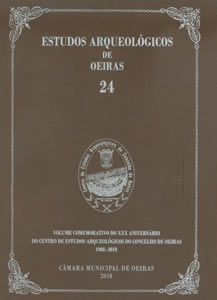Genesis of the Concept of The Bronze Age Culture on Southwestern Iberia
Keywords:
Bronze Age Culture, Iberian Southwest, Middle Bronze Age, necropolis of AtalaiaAbstract
The authors analyses the process of the research on the Bronze Age in the south of Portugal, since the heroic phase of the precursors (final of the nineteenth century) represented by Sebastião P. M. Estácio da Veiga, António Santos Rocha and José Leite de Vasconcelos; in the middle of the XX century, phase of increasing field-archaeology carried out by a group of archaeologists related with Abel Viana, an expansion of the culture of El Argar was proposed reaching the southwest of the Iberian Peninsula. Based on the excavation of the necropolis of Atalaia and on the re-elaboration of accumulated information, a new paradigm emerges, that considers the Bronze Age of southern Portugal an individualized and independent entity. Although, some influence from the culture of El Argar had been recognized, its origin was rooted in the regional late Chalcolithic. The most complete formulation of the concept of the Bronze Age culture of the Iberian Southwest, including the south of Portugal and the provinces of Huelva and Badajoz, is due to Hermanfrid Schubart (1975). Finally, the authors briefly allude to the current contributions to the knowledge on the Middle Bronze Age in the Iberian Southwest.
Downloads
Published
How to Cite
Issue
Section
License
Os artigos publicados são da exclusiva responsabilidade dos Autores.
É expressamente proibida a reprodução de quaisquer imagens sobre as quais
existam direitos de autor sem o prévio consentimento dos signatários dos artigos
respectivos.




